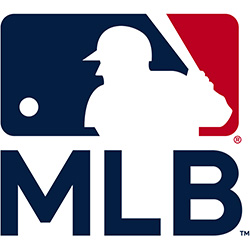 No overturning the MLB antitrust exemption this year, as Major League Baseball and four former Minor League Baseball teams settled state and federal lawsuits over the manner of the 2020 downsizing of MiLB to 120 teams.
No overturning the MLB antitrust exemption this year, as Major League Baseball and four former Minor League Baseball teams settled state and federal lawsuits over the manner of the 2020 downsizing of MiLB to 120 teams.
Three lawsuits, filed both in state court and U.S. District Court, argued that MLB overstepped its bounds in eliminating affiliations with 40 MiLB teams, deeming it a “unlawful group boycott” and acting in an uncompetitive fashion: “The Takeover Plan is nothing more than a naked, horizontal agreement to cement MLB’s dominance over all professional baseball and to reduce output and boycott the 40 Ousted Teams from MLB affiliation.”
The complaint also argued that MLB should not have unilaterally decided what teams were part of the new 120, but allowed the free market to let teams bid on remaining in MiLB while conforming to state antitrust laws.
The lawsuits were filed by the Tri-City ValleyCats, Norwich Sea Unicorns, Staten Island Yankees and Salem-Keizer Volcanoes in both state and federal courts, but both had faced obstacles thank to MLB’s antitrust exemption. A federal suit was dismissed, a decision affirmed after an appeal to the 2nd U.S. Circuit Court of Appeals. That decision was then appealed to the U.S. Supreme Court, which had not yet deciding on whether to take the appeal.
Challenging MLB’s antitrust exemption is not an uncommon effort in the U.S. legal system, and even reaching the U.S. Supreme Court docket would have been a triumph. We have seen such efforts rebuffed as recently as 2018 and 2015, but opponents have gunned for its reversal since 1922, when the court originally held that baseball was entertainment and not interstate commerce. That decision was affirmed in 1953 and 1972 court decisions; the 1972 case involving Curt Flood’s attempt to strike down the MLB reserve clause was initially decided against Flood, but subsequent mediation eliminated the reserve clause, leaving the antitrust exemption intact. The case could potentially have had a wider impact past just MLB: 18 attorneys general filed amicus briefs urging the court to hear arguments on the lawsuit. They raised a variety of issues, ranging from states’ rights (a popular topic among the current Supreme Court lineup) and the lack of Congressional instruction regarding antitrust (much of the status quo stems from the original 1922 case, though Congress did address the topic in the 1998 Curt Flood Act).
Prevailing at the Supreme Court level would have been challenging for the four teams: litigating at this level is not cheap for either side, and with no guarantee the court would take up the case, the expenses would keep mounting. The state lawsuits were slated to begin Nov. 13. No word on how much MLB paid for these settlement.
RELATED STORIES: 18 AGs sign onto challenge to MLB antitrust exemption; Four former MiLB teams challenge MLB’s antitrust exemption in U.S. District Court; Supreme Court Yet Again Declines to Strike Down MLB Antitrust Exemption; Supreme Court: No reexamination of MLB antitrust exemption; Could Supreme Court take on MLB antitrust exemption?; Bunning: Cubs best argument to eliminate MLB antitrust exemption; Appeals court puts San Jose antitrust lawsuit on fast track
